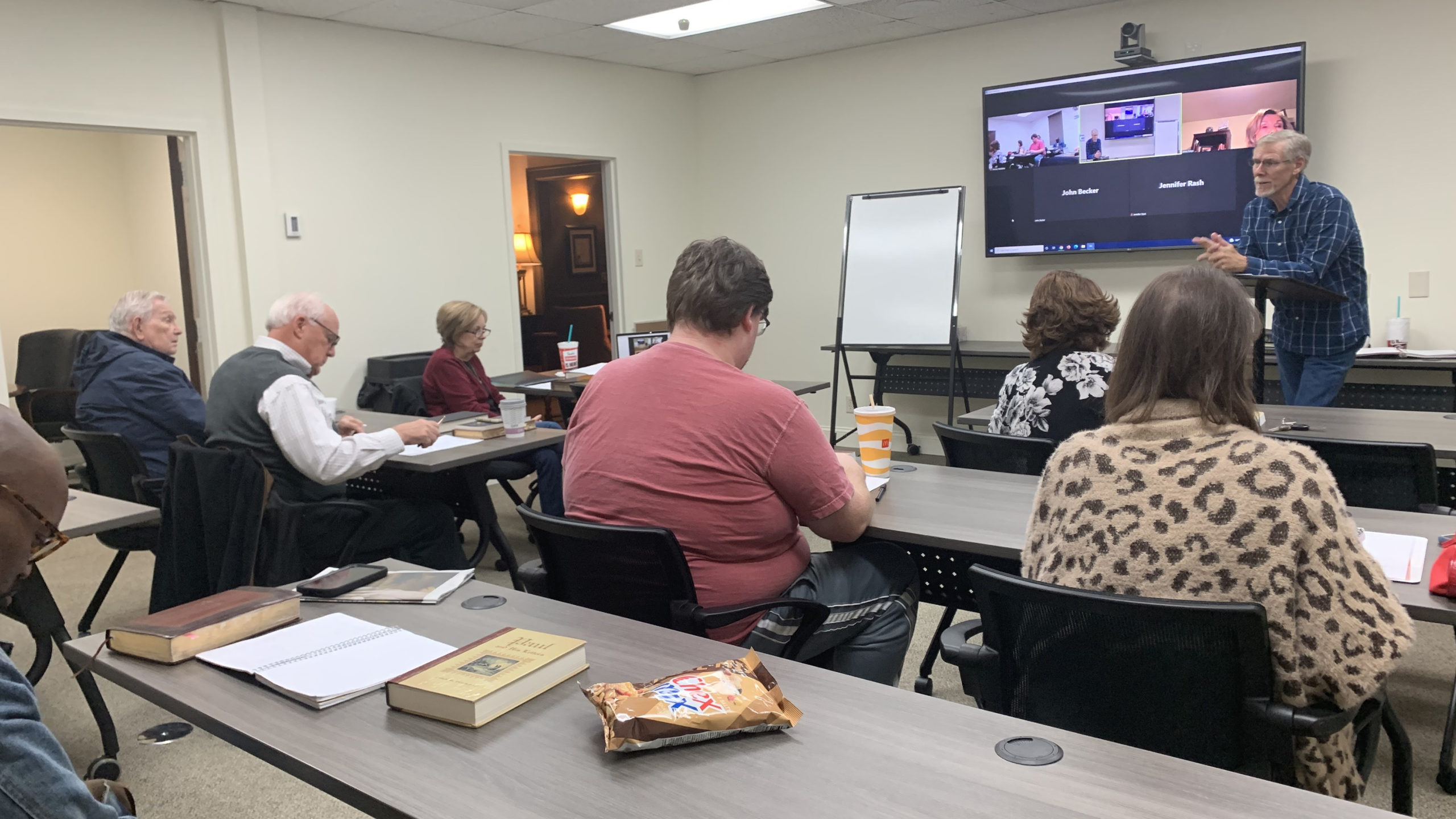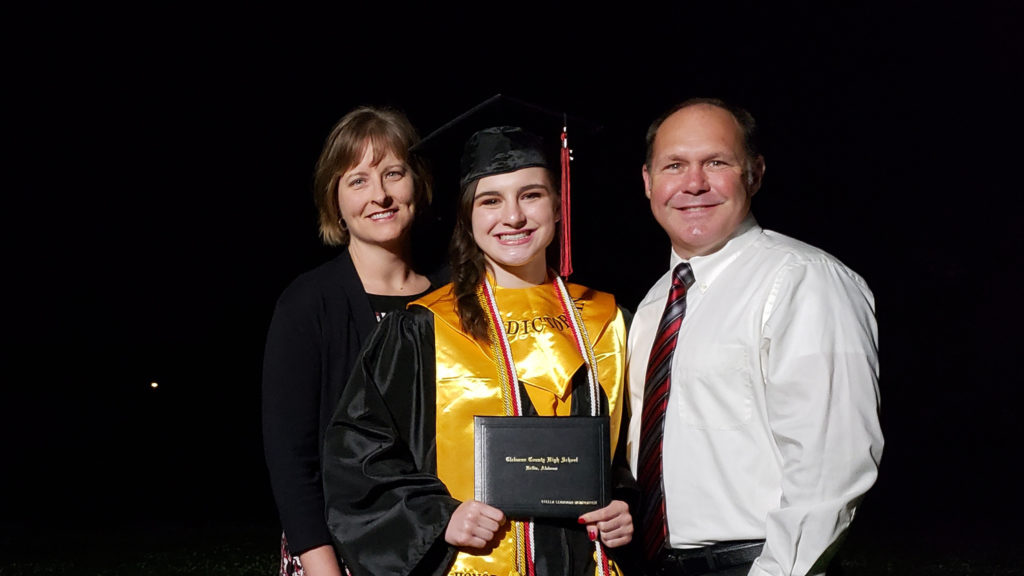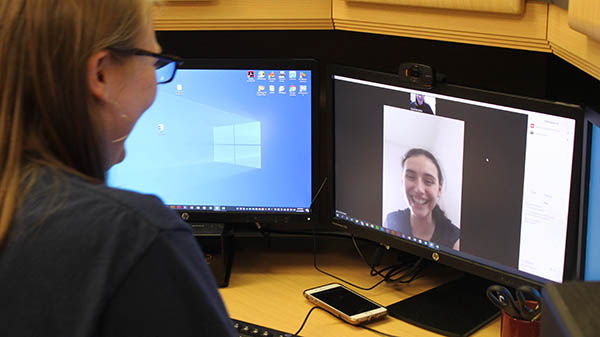Cheryl, a home-school mom and pastor’s wife who is her church’s new Woman’s Missionary Union leader, needs training to be effective in that role.
Sarah, a mother of young children who cannot afford child care or transportation expenses for being a traditional, full-time student, wants to hone her skills and be qualified for a job once her children are in school.
Michael, a deacon and Sunday School teacher, has a desire to go deeper in his study of God’s word.
Steve, retired and planning a missions trip to South America, has enrolled in conversational Spanish classes to be a more effective witness in an international setting.
There are hundreds of scenarios to describe the motivations and desires of nontraditional, returning or older learners, and fortunately, there are myriad programs available to meet these various learning needs and life situations.
Going online
As the pandemic unfolded, most colleges were forced to shift to online instruction.
Many schools further developed their online offerings and programs even after classes resumed on campus.
The University of Mobile had several online graduate programs and now has three completely online degree programs: the bachelor of science in business administration, the bachelor of science in organizational leadership and the bachelor of science or arts in psychology.
Following the pandemic, UM also added 10 courses, each lasting eight weeks and covering the same curriculum as on-campus classes.
Williamson College in Franklin, Tennessee, also offers an online component of instruction.
The college’s mission is to “equip and empower graduates to be on mission in the world for Christ.”
They offer a learning schedule designed with working adults in mind, with students attending class one night a week combined with an online component.
According to Robyn Wollas, director of student services, the most important aspect of Williamson College is its “authentically Christian environment where classes are taught from a Christian worldview.”
Deeper study
For those who wish to go deeper into their study of Scripture but who aren’t looking to earn a degree, programs like the Ministry Training Institute at Samford University may be an ideal solution.
Kevin Blackwell, executive director of MTI, said many of the program’s students “had a call to ministry later in life and are not in a place where they can go back to college or seminary. Our program makes the most sense for them due to the affordability and accessibility of our classes.”
Classes are held all over the state and online. Some MTI extension classes require attending class one night a week and completing academic work, while the online certificate program “offers a fully online educational experience in the areas of pastoral leadership, disciple making, women’s leadership and worship leadership,” Blackwell said.
Michael Barron, church administrator at Smithville Baptist Church in Bessemer, has completed several MTI classes.
He appreciates the opportunity to form vital Christian friendships through the program, noting, “I strongly feel the courses have enriched my life, which in turn has impacted my ministry, my family and my church.”
Women in ministry have access to the WMU Christian Women’s Leadership Center, made possible by the Eleanor Terry Endowment for Christian Women’s Leadership.
The Christian Women’s Leadership Center offers nine courses, each lasting 30 days.
Courses can be completed at the student’s pace.
“We have a wide age range of students,” noted Kristy Carr, WMU senior hub manager.
“Some are just getting their careers started, while others are enjoying retirement.
“I would describe our students as lifelong learners.
“Some participants are new to roles and need practical guidance. For other students, building confidence through a shared community of learning is helpful.
“The courses are designed for personal leadership development as well as spiritual development,” Carr said.
For those looking for classes that nurture their skills and interests in more general topics, programs affiliated with the Osher Foundation and its OLLI (Osher Lifelong Learning Institute) classes might fit that need.
Designed for learners aged 50 and older, OLLI has affiliates at the University of Alabama in Tuscaloosa, the University of Alabama in Huntsville and Auburn University, with course offerings on other campuses too.
Personal growth
Each program offers informal courses of local interest and classes that promote creativity as well.
At UAH, for example, course descriptions for 2022 range from painting, cooking, music and history to conversational German, French and Spanish.
And Job 12:12 says, “Is not wisdom found among the aged? Does not long life bring understanding?”
All continuing education courses require a modest registration fee. Scholarships also are available for some.
Find links to all these programs at tabonline.org/lifelong-learner.
EDITOR’S NOTE — Connie Pearson, who is in her 70s, says she loves the term lifelong learner and hopes it will always apply to her.
More information
For more information about the programs, check out these websites:
Samford University’s MTI program — https://www.samford.edu/programs/ministry-training-institute/
Christian Women’s Leadership Center — https://www.wmu.com/leadership-development/cwlc/
University of Mobile’s online curriculum — https://umobile.edu/online/
Williamson College in Franklin, TN — www.williamsoncc.edu
University of Alabama, Osher Lifelong Learning Institute — https://olli.ua.edu
University of Alabama Huntsville, Osher Lifelong Learning Institute —https://www.uah.edu/cps/olli
Auburn University, Osher Lifelong Learning Institute —www.auburn.edu/outreach/olliatauburn





Share with others: